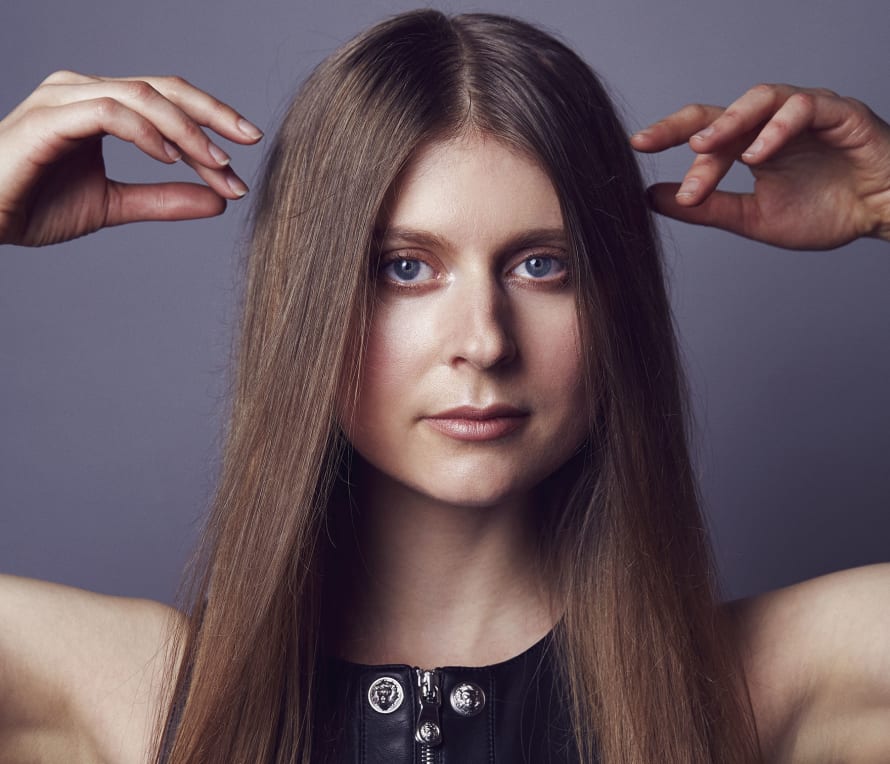When Lydia Ainsworth released her debut, Right From Real, in 2014, the carefully arranged strings and choral vocals — not to mention the fact she'd studied music at NYU — made it tempting to label her an "experimental" artist. But while experimental music tends to be intentionally difficult, Ainsworth's music has always been warm, elegant and inviting.
Her new, more synth-centric album for Arbutus Records, Darling of the Afterglow, is no different.
"I wanted to take things to the next level with production and songwriting," Ainsworth explains over tea. "I was conscious of 'Is this a good hook?' even though I stray from traditional pop song structures on this album. But those are all considerations I had on Right From Real, as well."
The most noticeable difference on Darling of the Afterglow is the increased focus on Ainsworth's powerful vocals, a change she attributes to her last few years spent touring her debut.
"Having to perform and really rely on my voice every single night gave me a new kind of confidence for this album. Now it's more up front."
That confidence is apparent throughout Darling. The verses of opener "Afterglow" find her singing in two simultaneous octaves, while she bends her striking alto around a glowing synth line on "Ricochet." Over the synth-y thunderclaps of "The Road," Ainsworth layers her vocals to build thick, ominous walls of gorgeous harmony.
Despite her formal training, Ainsworth says these songs are more "about capturing a feeling and expressing that in the most honest way I personally can" than flexing the more technical side of her abilities.
"School was great," she says, "but there comes a time when you're like, 'Okay, I have the tools, but I'm going to put them aside and let my emotions guide what I want to do right now.'"
Her new, more synth-centric album for Arbutus Records, Darling of the Afterglow, is no different.
"I wanted to take things to the next level with production and songwriting," Ainsworth explains over tea. "I was conscious of 'Is this a good hook?' even though I stray from traditional pop song structures on this album. But those are all considerations I had on Right From Real, as well."
The most noticeable difference on Darling of the Afterglow is the increased focus on Ainsworth's powerful vocals, a change she attributes to her last few years spent touring her debut.
"Having to perform and really rely on my voice every single night gave me a new kind of confidence for this album. Now it's more up front."
That confidence is apparent throughout Darling. The verses of opener "Afterglow" find her singing in two simultaneous octaves, while she bends her striking alto around a glowing synth line on "Ricochet." Over the synth-y thunderclaps of "The Road," Ainsworth layers her vocals to build thick, ominous walls of gorgeous harmony.
Despite her formal training, Ainsworth says these songs are more "about capturing a feeling and expressing that in the most honest way I personally can" than flexing the more technical side of her abilities.
"School was great," she says, "but there comes a time when you're like, 'Okay, I have the tools, but I'm going to put them aside and let my emotions guide what I want to do right now.'"
